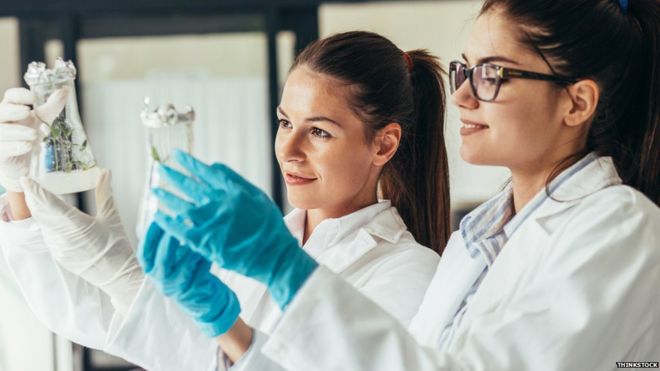Futures Forum: Brexit: and what does UK science do?
There were demonstrations in London today:
Theresa May told to 'stop using EU staff as pawns in Brexit', as thousands gather in protest | The Independent
The BBC reports:
Academics 'must not be used as Brexit pawns'
- 19 November 2016
- Education & Family
 THINKSTOCK
THINKSTOCK
Scientists, academics and students should not be used as "pawns" in political negotiations over Brexit, Theresa May is being warned.
People from all sections of academia, and MPs, are calling for EU researchers working in the UK to be exempted from any future immigration controls. The prime minister has said she cannot guarantee EU nationals the right to stay without reciprocal arrangements. The Science and Technology Committee has called for immediate action.
The call comes ahead of a demonstration in central London on Saturday.
University and College Union general secretary Sally Hunt will urge the Prime Minister to "stop using EU staff and students as pawns in Brexit negotiations. Show some humanity. Do the decent thing. Give our people the right to stay," she will say.
Prof Ottoline Leyser, representing the Royal Society, told the committee there were 31,000 non-UK EU citizens working in research in academia in the UK.
'Bargaining chips'
She said she believed that these people were "all feeling very anxious and unwelcome. There has been a lot of discussion about non-UK EU nationals currently working in the UK and what guarantees can be provided to them. I think it is absolutely not the way we should be proceeding - to use people's lives as bargaining chips in a broader political landscape. I do not think that is a constructive way to arrive at a negotiation table either."
In its report on implications for science and research following the vote to leave the EU, the committee called for "an immediate commitment to exempt them [EU researchers working in the UK] from Brexit negotiations on any reciprocal immigration controls for workers already in post." It also cited evidence stressing the importance of Britain being able "to recruit and retain the very best scientists, whatever country they come from".
Professor Philip Nelson of Research Councils UK told the committee: "the biggest risks to the research base in the UK are around the people involved".
'Competitive market'
The committee said it had received written examples of researchers considering rejecting UK job offers because of the uncertainty around the EU referendum result. It said that Dr Sarah Main of the Campaign for Science and Engineering (CaSE) effectively summarised much of their evidence.
She said: "It is not really a question of us allowing talented scientists and engineers to come here; it is about us fighting for them to come here. There is an international competitive market for these fantastically talented people."
She added that she felt the government should clearly state its priorities "for the place of science in our future" and "how it feels about the people that it wants to come here. UK science is not done by UK nationals. It is done by many people," she added.
University vice-chancellors mirrored this claim saying it was essential that staff and students from across the world can come to the UK without unnecessary administrative burdens.
University UK chief executive Nicola Dandridge said: "We also support the report's recommendation to appoint a chief scientific adviser to the Department for Exiting the EU. This would help to ensure that the significant implications of leaving the EU for science and research were adequately reflected in the government's post-exit plans."
Universities and Science Minister Jo Johnson said: "We intend to secure the best possible outcome for our research base as we exit the European Union. The excellence of our research and the attractiveness of the UK as a place to do it are fundamental to our continued success. Our international relationships make us a global centre of excellence."
Shortly after the EU referendum result in June, the government gave a guarantee that students currently in higher or further education - and those applying for a place this academic year (2016-17) - would continue to be able to access student funding support. And in October this guarantee was extended to students wishing to study in the UK next year.
Academics 'must not be used as Brexit pawns' - BBC News
.
.
.

No comments:
Post a Comment